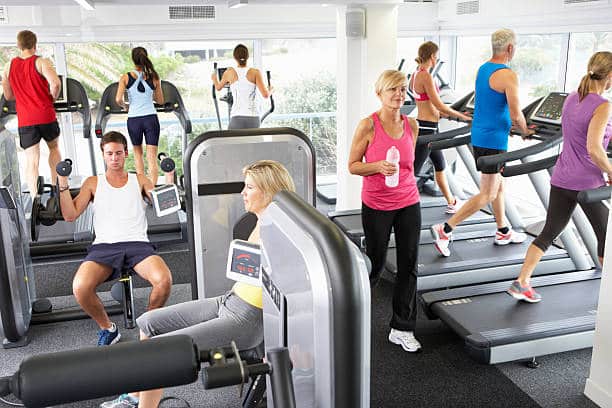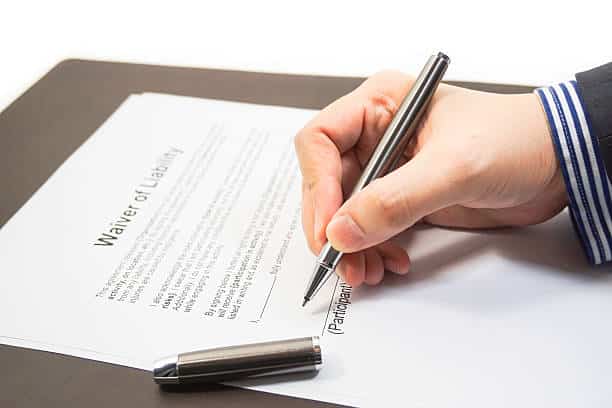What will happen if I had a gym accident
Accidents can happen anywhere, even in places designed to enhance our health and well-being, such as the gym. From slipping on a wet floor to injuries caused by faulty equipment, gym accidents are more common than many realize. If you’ve ever wondered what your rights are after suffering such an incident, this comprehensive article will help guide you.
Table of Contents:
1. Introduction to Gym Accidents
2. Common Types of Gym Accidents
3. Causes and Risk Factors in Gym Accidents
4. Legal Responsibilities of Gyms
5. Potential Injuries Resulting from Gym Accidents
6. Emotional and Financial Consequences of Gym Accidents
7. What to Do Immediately After a Gym Accident
8. The Long-Term Impact of Gym Accidents
9. Preventing Gym Accidents: Safety Tips for Members
10. Preventing Gym Accidents: Responsibilities of Gym Owners
11. Understanding Waivers and Contracts in Gym Memberships
12. Case Studies of Real-Life Gym Accidents
13. The Role of Insurance in Gym Accident Claims
14. How Personal Injury Lawyers Handle Gym Accident Cases
15. Seeking Legal Assistance
16. Conclusion and Next Steps
Introduction to Gym Accidents
Gyms are intended to be safe environments where individuals can exercise, improve their fitness, and prioritize their health. However, accidents happen more frequently than many people expect. Whether it’s a slip-and-fall, a weightlifting injury, or a machine malfunction, the impact of a gym accident can be devastating physically, emotionally, and financially.
Understanding your legal rights and the steps to take after such an accident is essential. This article will outline the common causes of gym accidents, the potential liability of gyms and trainers, the injuries that may result, and what you should do to protect yourself after an injury.
Common Types of Gym Accidents
- Slip-and-fall accidents: Wet floors, spilled water bottles, or sweat left uncleaned can cause members to slip and injure themselves.
- Faulty equipment: Malfunctioning treadmills, weight machines, or improperly maintained free weights can cause severe injuries.
- Improper supervision or training: Trainers who fail to provide correct instructions may be liable for injuries caused by improper form or overexertion.
- Collisions: In busy gyms, members may accidentally collide with each other, resulting in sprains, fractures, or head injuries.
- Inadequate safety protocols, including missing warning signs, a lack of sanitization, or poor maintenance, can create hazardous conditions.
- Improper cleaning agents: Slippery residue from cleaning products can make gym floors hazardous.
- Overuse injuries: Encouraging individuals to push beyond safe limits can lead to long-term damage.
These accidents often happen when you least expect them, disrupting your fitness goals and potentially changing your daily life.
Causes and Risk Factors in Gym Accidents
While accidents may seem random, they often result from specific risk factors. Some of these include:

- Overcrowded gyms: Having too many people in a single area increases the risk of collisions and accidents.
- Poor maintenance practices: Equipment that isn’t regularly inspected or repaired can lead to mechanical failures.
- Improper footwear or attire: Wearing shoes without proper grip can lead to slips, especially on smooth gym flooring.
- Lack of staff oversight: Without attentive staff, dangerous conditions may go unnoticed.
- User error: Sometimes, accidents occur because of improper form, lifting too much weight, or pushing beyond safe limits.
- Inadequate emergency response plans: Gyms without proper first-aid resources or staff training may worsen the outcome of an accident.
- Negligent hiring practices: Employing unqualified trainers or staff members may increase the risk of injury.
While members have a responsibility to exercise caution, gyms must also ensure their environment is reasonably safe.
Legal Responsibilities of Gyms
Gyms and fitness centers have a duty of care to protect their members from foreseeable harm. This means they are legally required to maintain a safe environment and take reasonable measures to prevent accidents.
Key Legal Duties of Gyms
- Maintain clean and safe premises at all times.
- Regularly inspect, maintain, and repair gym equipment.
- Provide clear safety instructions and visible warning signs.
- Ensure staff are properly trained, certified, and competent.
- Respond promptly and appropriately to emergencies.
Liability for Negligence
If a gym fails to uphold these responsibilities and you suffer an injury as a result, the facility may be held legally liable for negligence.
Even if you signed a waiver, it does not automatically absolve the gym of responsibility in all situations. For example, if your injury was caused by faulty equipment or gross negligence from the staff, you may still have a valid legal claim for compensation.
Potential Injuries Resulting from Gym Accidents
The impact of a gym accident can range from minor injuries to severe, life-altering conditions. The severity often depends on the type of incident, the equipment involved, and the immediate response after the accident.
Common Gym-Related Injuries
- Sprains and Strains: Overexertion, improper form, or sudden movements can cause muscle and ligament damage.
- Fractures: Falls or dropped weights can lead to broken bones and long recovery periods.
- Head Injuries: Slips, falls, or collisions may result in concussions or traumatic brain injuries.
- Spinal Injuries: Poor lifting techniques or equipment malfunctions can cause serious back or spinal cord injuries.
- Dislocations: Often caused by lifting weights incorrectly or when using faulty gym equipment.
- Cuts and Bruises: Though less severe, they can still cause pain, swelling, and inconvenience.
- Internal Injuries: In rare but severe cases, blunt force trauma from gym equipment can lead to internal bleeding or organ damage.
Long-Term Consequences
In severe situations, gym-related accidents can result in permanent disabilities that may prevent you from returning to work or performing everyday activities. Seeking immediate medical attention and legal advice can help protect your health and your rights.
Emotional and Financial Consequences of Gym Accidents
While the physical effects of a gym accident are often the most visible, the emotional and financial toll can be equally devastating. Beyond the immediate pain, victims often struggle with long-term challenges that affect their livelihood and overall well-being.
Common Emotional and Financial Impacts
- High Medical Bills: Costs for emergency treatment, diagnostic tests, surgery, rehabilitation, and ongoing therapy can accumulate quickly.
- Loss of Wages: Taking time off work during recovery can lead to income loss and financial hardship.
- Emotional Trauma: Victims may experience anxiety, depression, or post-traumatic stress disorder (PTSD) following a serious gym injury.
- Loss of Confidence: Many individuals develop fear or hesitation about returning to the gym or engaging in physical activities again.
- Impact on Family Life: Loved ones may need to provide physical or emotional support, creating additional stress and strain within the household.
- Long-Term Financial Instability: Severe or permanent injuries can affect future earning potential and lead to ongoing financial challenges.
These emotional and financial burdens highlight the importance of holding negligent parties accountable and seeking proper compensation to rebuild stability after a gym accident.
What to Do Immediately After a Gym Accident

2. Report the accident – Inform gym staff and ensure that the incident is documented in their records.
3. Gather evidence – Take photos of the scene, your injuries, and any faulty equipment.
4. Collect witness statements – If others saw the accident, their testimony can support your claim.
5. Avoid giving detailed statements without legal advice – Gyms may ask you to sign or submit a statement that could harm your claim.
6. Keep all medical records and bills – This documentation will be critical for your case.
7. Contact a personal injury lawyer – An attorney can evaluate your case and help you pursue compensation.
Taking these steps immediately ensures that you have the necessary evidence and legal support to protect your rights.
The Long-Term Impact of Gym Accidents
Beyond the immediate pain and financial challenges, gym accidents can have lasting physical, emotional, and financial consequences. Understanding these long-term effects is essential when pursuing fair compensation for your injuries.
Common Long-Term Effects of Gym Injuries
- Ongoing Medical Treatment: Victims may require extended physical therapy, multiple surgeries, or long-term medication management.
- Loss of Earning Capacity: Severe or permanent injuries can prevent individuals from returning to their previous job or career path.
- Emotional Distress: The trauma of the accident can lead to anxiety, depression, or a fear of returning to fitness activities.
- Lifestyle Changes: Reduced mobility and independence can alter daily routines and strain personal relationships.
- Chronic Pain: Persistent discomfort or limited movement can significantly affect quality of life and overall well-being.
Seeking Fair Compensation
When filing a claim, it’s crucial to consider not just immediate medical expenses but also the long-term impact on your health, career, and lifestyle. Settlements should reflect ongoing treatment costs, loss of future income, and emotional suffering.
Preventing Gym Accidents: Safety Tips for Members
While gyms are legally required to maintain safe facilities, members also play an important role in preventing accidents. By practicing proper safety habits, you can reduce your risk of injury and enjoy a safer workout experience.
Essential Gym Safety Tips
- Always Warm Up and Cool Down: Preparing your muscles before and after exercise helps prevent strains and injuries.
- Wear Proper Footwear: Choose shoes with good grip and support to avoid slips and falls.
- Use Equipment Correctly: Follow all instructions and ask for assistance if you’re unsure how to operate a machine.
- Know Your Limits: Avoid overexertion and listen to your body’s signals to prevent overuse or fatigue-related injuries.
- Report Unsafe Conditions: Notify gym staff immediately about wet floors, broken equipment, or other hazards.
- Stay Hydrated and Take Breaks: Regular water intake and rest periods help maintain energy and focus during workouts.
- Avoid Distractions: Keep your attention on your movements—avoid texting, phone calls, or multitasking while exercising.
Stay Safe and Informed
Being proactive about safety not only protects you but also promotes a safer gym community for everyone.
Preventing Gym Accidents: Responsibilities of Gym Owners
Gym owners have a legal and ethical obligation to ensure the safety of their members and staff. By maintaining a secure environment and enforcing safety standards, they can significantly reduce the risk of accidents and injuries.
Key Safety Responsibilities of Gym Owners
- Conduct Daily Equipment Inspections: Regular checks help identify and address malfunctioning or worn-out machines before they cause harm.
- Train Staff in First Aid and CPR: Employees should be certified and ready to respond to medical emergencies at any time.
- Provide Clear Instructions and Warning Signs: Safety signage and instructional materials help members use equipment correctly and avoid injury.
- Sanitize and Maintain Gym Floors: Regular cleaning prevents slippery surfaces caused by sweat, water, or cleaning agents.
- Limit Overcrowding and Enforce Safety Policies: Managing gym capacity helps reduce collisions and ensures all members can exercise safely.
- Repair or Replace Damaged Equipment Promptly: Faulty machines should be taken out of service until properly fixed or replaced.
- Establish Emergency Protocols and Drills: Having a clear response plan for accidents or medical emergencies ensures quick and efficient action.
Promoting a Safe Gym Environment
By fulfilling these responsibilities, gym owners demonstrate their commitment to member safety and reduce the likelihood of costly legal claims.
Understanding Waivers and Contracts in Gym Memberships

- Waivers cannot protect against gross negligence. If a gym ignores safety hazards, it may still be liable.
- Ambiguous language may be invalid. Courts often rule against contract terms that are unclear or misleading.
- State laws vary. Some states strictly limit the amount of liability a gym can waive.
Understanding your membership agreement is crucial in determining your rights after a gym accident.
Case Studies of Real-Life Gym Accidents
To better understand how the law applies to gym accidents, consider these real-life examples:
Case 1: Faulty treadmill injury – A member suffered severe leg injuries when a treadmill malfunctioned. The court ruled that the gym failed to inspect and maintain equipment properly, awarding damages to the victim.
Case 2: Slip-and-fall on wet floor – A member slipped on an unmarked wet floor near the showers. The gym was held liable for not placing warning signs.
Case 3: Trainer Negligence – A personal trainer pushed a client to lift hefty weights, resulting in a back injury. The trainer and gym were both held responsible.
These examples illustrate how liability can be attributed to gyms, trainers, or equipment manufacturers.
The Role of Insurance in Gym Accident Claims
Insurance plays a significant role in gym accident cases. Gyms are typically required to carry liability insurance, which may cover injuries that occur on their premises. Victims may be compensated through:
- Premises liability insurance
- Covers injuries caused by unsafe conditions.
- Professional liability insurance – Applies to trainer negligence.
- Product liability insurance – May cover injuries from defective equipment.
However, insurance companies often attempt to minimize payouts, making legal representation essential.
How Personal Injury Lawyers Handle Gym Accident Cases
When you hire a personal injury lawyer after a gym accident, they will:
1. Investigate the accident thoroughly.
2. Collect evidence, including medical records, surveillance footage, and witness testimony.
3. Identify liable parties (gym, trainer, equipment manufacturer).
4. Calculate fair compensation for medical costs, lost wages, and pain.
5. Negotiate with insurance companies.
6. Represent you in court if necessary.
Having a skilled attorney ensures that you are not taken advantage of during the claims process.
Seeking Legal Assistance
Gym accidents can result in serious injuries that impact your life long after the incident. Holding the responsible party accountable is crucial to ensure you receive the compensation you deserve. Navigating the legal process on your own can be overwhelming, which is why having an experienced personal injury attorney by your side makes all the difference.
At Roxell Richards Injury Law Firm, we are committed to helping victims of gym accidents pursue justice. Our experienced legal team understands the complexities of premises liability and personal injury claims. We will investigate your case, gather evidence, and seek maximum compensation on your behalf.
We recognize that each case is unique, and we are dedicated to providing personalized support. From negotiating with insurance companies to representing you in court, we will stand by your side every step of the way.
Conclusion and Next Steps
👉 Call us now and let Roxell Richards Injury Law Firm help you get the justice you deserve after a gym accident.
Houston, TX z7057
Phone: (713) 974-0388
Fax: (713) 974-0003

